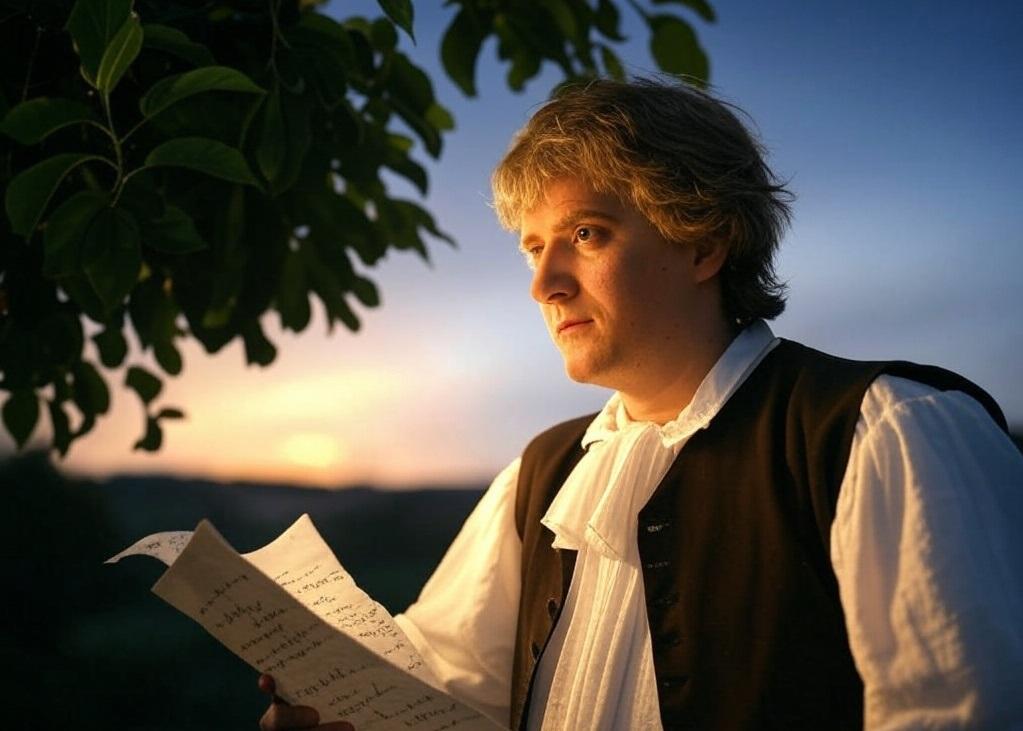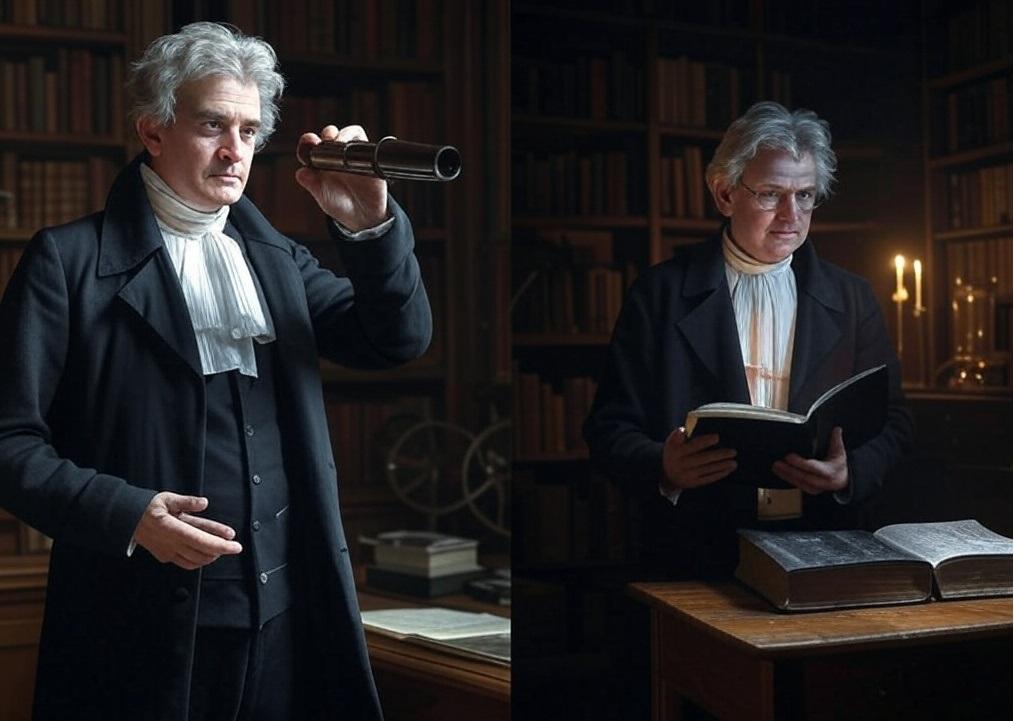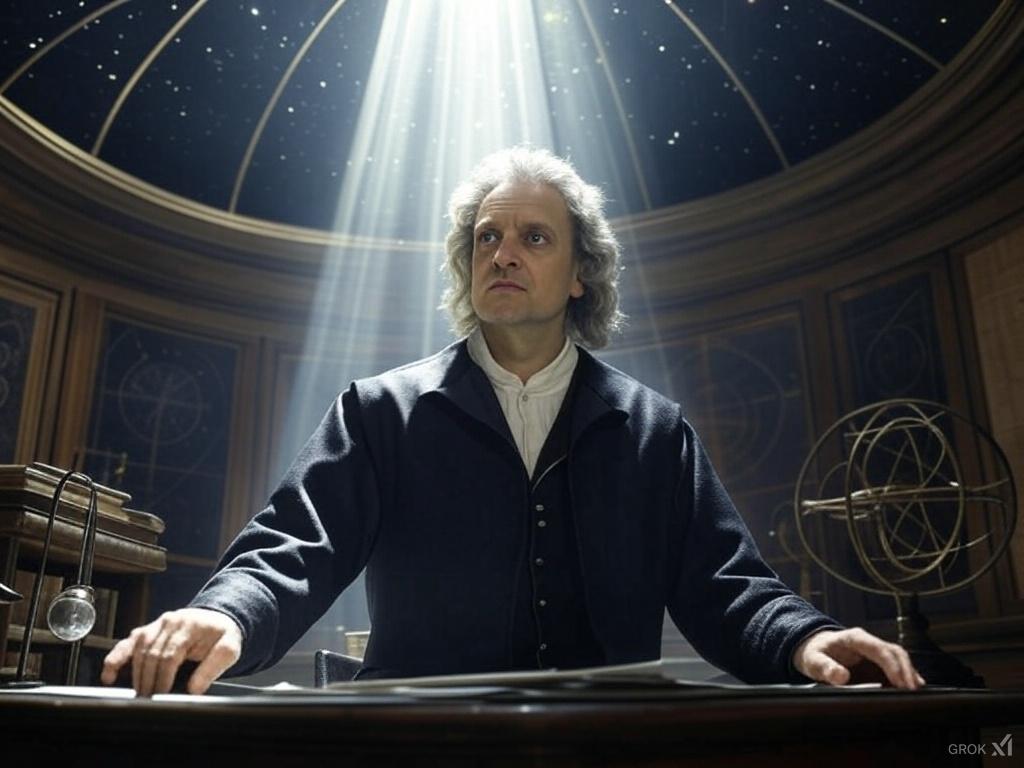Isaac Newton: The Christian Genius Who Saw God in Every Equation

Picture this: a young man sits under an apple tree, scribbling equations by candlelight. A fruit falls, thud, and suddenly, he’s struck not by the apple, but by a divine revelation about gravity. This isn’t just the Isaac Newton of legend, it’s a man whose Christian faith was the secret sauce behind his laws of motion, calculus, and even his reflecting telescope. While history labels him a scientist, Newton’s heart beat for theology. He wrote more about biblical prophecy than physics, saw the universe as God’s “Book of Nature,” and once calculated the apocalypse date (spoiler: after 2060). Buckle up, this is the untold story of how a devout Christian became the architect of modern science.
The Boy Who Preached to Birds (and Later Revolutionized Science)

Born prematurely on Christmas Day 1642 (a date he’d later call “proof of divine timing”), Isaac Newton entered the world as a sickly farmer’s son in Woolsthorpe, England. His father died months earlier, leaving Newton to be raised by a grandmother who thought he’d never survive infancy. Fast-forward to Cambridge University: while classmates partied, Newton buried himself in Aristotle, Descartes, and clandestine Bible studies. By 26, he’d invented calculus, not to flex on mathematicians, but to model God’s “perfect cosmic clockwork”.
Newton’s Early Life Highlights
-
Farm Boy to Scholar: Flunked out of farming (sheep kept escaping) but aced his way to Cambridge on a scholarship meant for servants.
-
Plague Productivity: When the Great Plague shut Cambridge in 1665, Newton quarantined at home… and revolutionized physics, math, and optics in 18 months. Talk about a productive lockdown!
-
Prism Party Trick: Discovered white light splits into colors using a prism. His conclusion? “God paints in rainbows”.
Bible Scholar by Night, Scientist by Day

Newton’s lab was a mess of telescopes, alchemy potions, and Bible commentaries. While his Principia Mathematica made him famous, his real obsession was decoding Scripture. He wrote 10 million words on theology, enough to fill 20 Bibles, but hid them, fearing backlash.
Newton’s Theology: The Hot Takes That Would’ve Gone Viral
-
Rejected the Trinity: Newton privately denied the doctrine of the Trinity, calling it a corruption of early Christianity. He saw Christ as subordinate to God the Father, a view he hid to avoid persecution.
-
Studied Biblical Prophecy: He spent decades analyzing the Book of Daniel and Revelation, even calculating a possible date for the apocalypse (after 2060) to counter “rash conjectures” about the end times.
-
Believed in “Pristine” Religion: Newton sought to restore what he called the “prisca sapientia”, the original, uncorrupted worship of God he believed was practiced by Noah, Moses, and Jesus.
Science as Worship: How Newton’s Faith Fueled His Formulas

For Newton, every equation was a prayer. His laws of motion weren’t just rules, they were God’s user manual for the cosmos.
1. Gravity: God’s Invisible Hand
When that infamous apple fell, Newton didn’t just see gravity, he saw God’s “intelligent Being” holding the universe together. His math proved planets moved in “exact harmony”, no random chance, just divine design.
2. Calculus: Math for Divine Order
Newton invented calculus to model tidal patterns and planetary orbits. Why? To show God’s creation was a “rational system”, not chaos. As he wrote in Principia: “This most beautiful system could only proceed from a perfect Creator”.
3. Telescope to the Heavens
His reflecting telescope wasn’t just for stargazing. Newton aimed to “spy on God’s workshop,” mapping comets as celestial proof of biblical prophecies.
The Secret Life of a Christian Alchemist

While his scientific works made him famous, Newton’s most passionate writings focused on theology:
-
Anti-Trinitarian Theology: In unpublished manuscripts, Newton argued that the Trinity was a 4th-century invention, calling it “idolatry”. He cited scriptures like John 14:28 (“The Father is greater than I”) to prove Christ’s subordination to God.
-
Biblical Chronology: He wrote a 500-page analysis tracing ancient kingdoms through Scripture, aiming to prove the Bible’s historical accuracy.
-
Moral Code: Newton viewed Christ’s teachings, love for God and neighbor, as the core of “true religion”, dismissing rituals and dogmas as human additions.
Newton vs. the World: The Drama Behind the Genius
Behind the wig and knighthood, Newton was a moody introvert with epic grudges.
Feud Hall of Fame
-
Leibniz: Fought over who invented calculus (Newton’s fans called Leibniz “Satan’s accountant”).
-
The Church: Hid his anti-Trinitarian views to avoid losing his job. His motto: “Keep heresy on the down-low”.
-
Fake Friends: As Royal Society president, he rigged trials to embarrass rivals. Petty? Yes. Effective? Also yes.
Legacy: Why a Dead Theologian Matters in Your TikTok Era
Newton’s story isn’t just old news, it’s a roadmap for today’s science vs. faith debates.
3 Lessons from the Original Science Bro
-
Curiosity is Holy: For Newton, studying nature was “worship through wonder”. Your Instagram stargazing? Basically Newtonian piety.
-
Doubts are Divine: He questioned everything, even the Trinity, but kept faith. Modern take: It’s okay to wrestle with big questions.
-
Stay Humble, Stay Hungry: Despite his ego, Newton wrote: “I’m just a kid playing on truth’s shore”. Translation: Stay curious, stay humble.
Newton’s Playlist: Divine Hits for the Modern Listener
-
“Gravity” by John Mayer: For when you’re pondering orbital mechanics.
-
“Heavenly Father” by Bon Iver: Newton’s late-night Bible-study vibe.
-
“Imagine” by John Lennon: Newton’s version: Imagine all religions…rational.
Conclusion: The Man Who Mathed God

Isaac Newton wasn’t a scientist who tolerated religion, he was a Christian mystic who used science to trace God’s fingerprints. His calculus, telescope, and apocalypse math all sprang from a faith that saw the cosmos as a love letter from its Creator. In a world where TikTokers fight over “science vs. Bible,” Newton whispers: Why not both?
Final Thought: Next time you drop your phone (thanks, gravity), remember: a Bible-loving farm boy made sure it falls at 9.8 m/s². Now that’s a divine plot twist.






